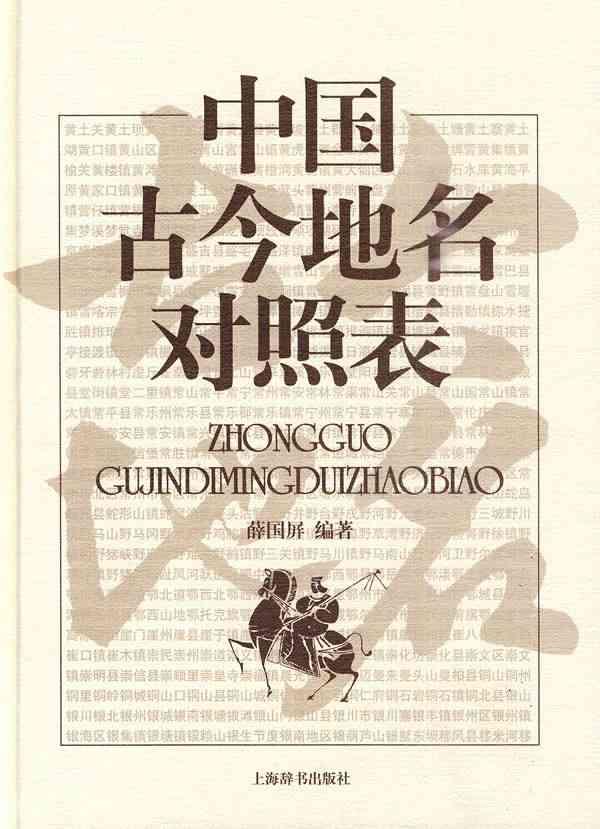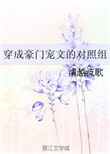中英对照新概念英语文本全4册-1-第10章
按键盘上方向键 ← 或 → 可快速上下翻页,按键盘上的 Enter 键可回到本书目录页,按键盘上方向键 ↑ 可回到本页顶部!
————未阅读完?加入书签已便下次继续阅读!
换开吗?
乘 客3: 恐怕不能。
乘 客4: 我也不能。
售票员: 非常抱歉,先生。您必须下车。
我们的乘客中没人能换开这张
钞票。
他们都是百万富翁!
二流浪汉:我们俩除外。
流浪汉1: 我有零钱。
流浪汉2: 我也有。
Lesson 115
Knock; knock!
敲敲门!
Listen to the tape then answer this question。 What does Jim have to drink?
听录音,然后回答问题。吉姆只能喝什么饮料?
HELEN: Isn't there anyone at home?
JIM: I'll knock again; Helen。
Everything's very quiet。
I'm sure there's no one at home。
HELEN: But that's impossible。
Carol and Tom invited us to
lunch。
Look through the window。
HELEN: Can you see anything?
JIM: Nothing at all。
HELEN: Let's try the back door。
JIM: Look! Everyone's in the garden。
CAROL: Hello; Helen。 Hello; Jim。
TOM: Everybody wants to have lunch
in the garden。
It's nice and warm out here。
CAROL: Come and have something to drink。
JIM: Thanks; Carol。
May I have a glass of beer
please?
CAROL: Beer?
There's none left。
You can have some lemonade。
JIM: Lemonade!
TOM: Don't believe her; Jim。
She's only joking。
Have some beer!
New Word and expressions 生词和短语
anyone
pron。(用地疑问句,否定句)任何人
knock
v。 敲,打
everything
pron。一切事情
quiet
adj。 宁静的,安静的
impossible
adj。 不可能的
invite
v。 邀请
anything
pron。任何东西
nothing
pron。什么也没有
lemonade
n。 柠檬水
joke
v。 开玩笑
参考译文
海 伦:家里没有人吗?
吉 姆:海伦,我再敲一次。毫无动静,肯定
家里没有人。
海 伦:但这是不可能的。卡罗尔和汤姆请
我们来吃午饭。从窗子往里看看。
海 伦:你能看见什么吗?
吉 姆:什么也看不见。
海 伦:让我们到后门去试试。
吉 姆:瞧!大家都在花园里。
卡罗尔:你好,海伦。你好,吉姆。
汤 姆:大家都想在花园里吃午饭。
这外面挺暖和。
卡罗尔:来喝点什么。
汤 姆:谢谢,卡罗尔。给我一杯啤酒好吗?
卡罗尔:啤酒?一点都不剩了。
你可以喝点柠檬水。
吉 姆:柠檬水!
汤 姆:吉姆,别信她的。她只是在开玩笑。
喝点啤酒吧!
Lesson 117
Tommy's breakfast
汤米的早餐
Listen to the tape then answer this question。 What does she mean by 'change in the last sentence?
听录音,然后回答问题。最后一名话中的“change〃 是什么意思?
When my husband was going into the dining room this morning; he dropped some coins on the floor。
There were coins everywhere。 We looked for them; but we could not find them all。
While we were having breakfast; our little boy; Tommy; found two small coins on the floor。
He put them both into his mouth。 We both tried to get the coins; but it was too late。 Tommy had already swallowed them!
Late that morning; when I was doing the housework; My husband phoned me from the office。
'How's Tommy?' he asked。 'I don't know;' I answered; 'Tommy's been to the toilet three times this morning; but I haven't had any change yet!'
New Word and expressions 生词和短语
dinning room
饭厅
coin
n。 硬币
mouth
n。 嘴
swallow
v。 吞下
later
adv。 后来
toilet
n。 厕所,盥洗室
参考译文
今天早晨我丈夫走进饭厅时,把一些硬币掉在地上了。
到处都是硬币。我们虽然找了,但没有把它们全部找到。
正当我们吃早饭时,我们的小男孩汤米在地上找到两枚小硬币。
他把这两枚硬币全都放进嘴里。我们俩都试图把这两枚硬币拿出来,但太迟了。汤米已经把硬币咽了下去!
那天下午的晚些时候,当我正做家务时,我丈夫从办公室打来电话。
“汤米怎么样?”他问。“我不知道”,我回答说,“今天上午汤米去了3次厕所了,但我还没看到硬币!”
Lesson 119
A true story
一个真实的故事
Listen to the tape then answer this question。 Who called out to the thieves in the dark?
听录音,然后回答问题。谁在暗处对窃贼喊了一声?
Do you like stories? I want to tell you a true story。 It happened to a friend of mine a year ago。
While my friend; George; was reading in bed; two thieves climbed into his kitchen。
After they had entered the house; they went into the dining room。 It was very dark; so they turned on a torch。
Suddenly; they heard a voice behind them。 〃What's up? What's up?〃 someone called。 The thieves dropped the torch and ran away as quickly as they could。
George heard the noise and came downstairs quickly。
He turned on the light; but he couldn't see anyone。 The thieves had already gone。
But George's parrot; Henry; was still there。 〃What's up; George?〃 the called。 'Nothing; Henry;' George said and smiled。 'Go back to sleep。'
New Word and expressions 生词和短语
story
n。 故事
happen
v。 发生
thief
n。 贼
enter
v。 进入
dark
adj。 黑暗的
torch
n。 手电筒
voice
n。 (说话的)声音
parrot
n。 鹦鹉
参考译文
你喜欢听故事吗?我要告诉你一个真实的故事。这是一年前发生在我的一个朋友身上的故事。
当我的朋友乔治在床上看书时,两个小偷爬进了他的厨房。
他们进到屋里后,走进了饭厅。饭厅很暗,于是他们打开了手电筒。
突然他们听到身后有声音。“什么事?什么事?”有人叫着。小偷扔下了手电筒,飞快地逃走了。
乔治听到了响声,迅速地下了楼。
他开了灯,但不见一个人。小偷逃走了。
但时乔治的鹦鹉亨利仍在那里。“什么事,乔治?”它叫着。“没事,亨利。”乔治笑着说,“接着睡觉吧。”
Lesson 121
The man in a hat
戴帽子的男士
Listen to the tape then answer this question。 Why didn't Caroline recognize the customer straight away?
听录音,然后回答问题。为什么卡罗琳没有马上认出那位顾客?
CUSTOMER: I bought two expensive
dictionaries here half
and hour ago; but I forgot
to take them with me。
MANAGER: Who served you; sir?
CUSTOMER: The lady who is standing
behind the counter。
MANAGER: Which books did you buy?
CUSTOMER: The books which are on
the counter。
MANAGER: Did you serve this gentleman
half an hour ago; Caroline?
He says he's the man who
bought these books。
CUSTOMER: I can't remember。
The man who I served was
wearing a hat。
MANAGER: Have you got a hat; sir?
CUSTOMER: Yes; I have。
MANAGER: Would you put it on; please?
CUSTOMER: All right。
MANAGER: Is this the man that you
served; Caroline?
CUSTOMER: Yes。
I recognize him now。
New Word and expressions 生词和短语
customer
n。 顾客
forget (forgot; forgotten)
v。 忘记
manager
n。 经理
serve
v。 照应,服务,接待
counter
n。 柜台
recognize
v。 认出
参考译文
顾 客:半小时以前我在这里买了两本很
贵的辞典,但是我忘了拿走。
经 理:是谁接待您的,先生?
顾 客:站在柜台后面的那位女士。
经 理:您买的是两本什么书?
顾 客:就是柜台上的那两本。
经 理:卡罗琳,半小时前你接待过这位先生
吗?他说他就是买这两本书的人。
卡罗琳:我记不起来了。我接待的那个人戴着
一顶帽子。
经 理:先生,您有帽子吗?
顾 客:有的,我有帽子。
经 理:请您把帽子戴上好吗?
顾 客:好吧。
经 理:卡罗琳,
这就是你接待过的那个人吗?
卡罗琳:是他。我现在认出他来了。
Lesson 123
A trip to Australia
澳大利亚之行
Listen to the tape then answer this question。 Who is the man with the beard?
听录音,然后回答问题。那个长着络腮胡子的人是谁?
MIKE: Look; Scott。
This is a photograph I took
during my trip to Australia。
SCOTT: Let me see it; Mike。
SCOTT: This is a good photograph。
Who are these people?
MIKE: They're people I met during the
trip。
MIKE: That's the ship we travelled on。
SCOTT: What a beautiful ship!
SCOTT: Who's this?
MIKE: That's the man I told you about。
Remember?
SCOTT: Ah yes。
The one who offered you a job
in Australia。
MIKE: That's right。
SCOTT: Who's this?
MIKE: Guess!
SCOTT: It's not you; is it?
MIKE: That's right。
MIKE: I grew a beard during the trip。
but I shaved it off
when I came home。
SCOTT: Why did you shave it off?
MIKE: My wife didn't like it!
New Word and expressions 生词和短语
during
prep。在……期间
trip
n。 旅行
travel
v。 旅行
offer
v。 提供
job
n。 工作
guess
v。 猜
grow (grew; grown)
v。 长,让……生长
beard
n。 (下巴上的)胡子,络腮胡子
参考译文
迈 克:看,这是我到澳大利来旅行时
拍的一张照片。
斯科特:让我看看,迈克。
斯科特:这是一张很好的照片。这些人是谁。
迈 克:他们是我旅行时认识的人。
迈 克:这是我们所乘的那条船。
斯科特:多漂亮的船啊!
斯科特:这是谁?
迈 克:这就是我跟你说过的那个人。
还记得吗?
斯科特:啊,记得。就是在澳大利亚给你工作
的那个人。
迈 克:对。
斯科特:这是谁?
迈 克:你猜!
斯科特:这不是你,对吗?
迈 克:不,是我。
迈 克:我在旅行时留了胡子,
但我回到家时就把它刮了。
斯科特:你为什么把它刮了?
迈 克:我妻子不喜欢!
Lesson 125
Tea for two
两个人一起喝茶
Listen to the tape then answer this question。 Does Susan have tea by herself?
听录音,然后回答问题。苏珊是一个人喝茶吗?
SUSAN: Can't you come in and have tea
now; Peter?
PETER: Not yet。
I must water the garden first。
SUSAN: Do you have to water it now?
PETER: I'm afraid I must。
Look at it!
It's terribly dry。
SUSAN: What a nuisance!
PETER: Last summer it was very dry; too。
Don't you remember?
I had to water it every day。
SUSAN: Well; I'll have tea by myself。
SUSAN: That was quick!
Have you finished already?
PETER: Yes。
Look out of the window。
SUSAN: It's raining!
That means
You don't need to water
the garden。
PERTR: That was a pleasant surprise。
It means I can have tea;
instead。
New Word and expressions 生词和短语
water
v。 浇水
terribly
adv。 非常
dry
adj。 干燥的,干的
nuisance
n。 讨厌的东西或人
mean (meant; meant)
v。 意味着,意思是
surprise




